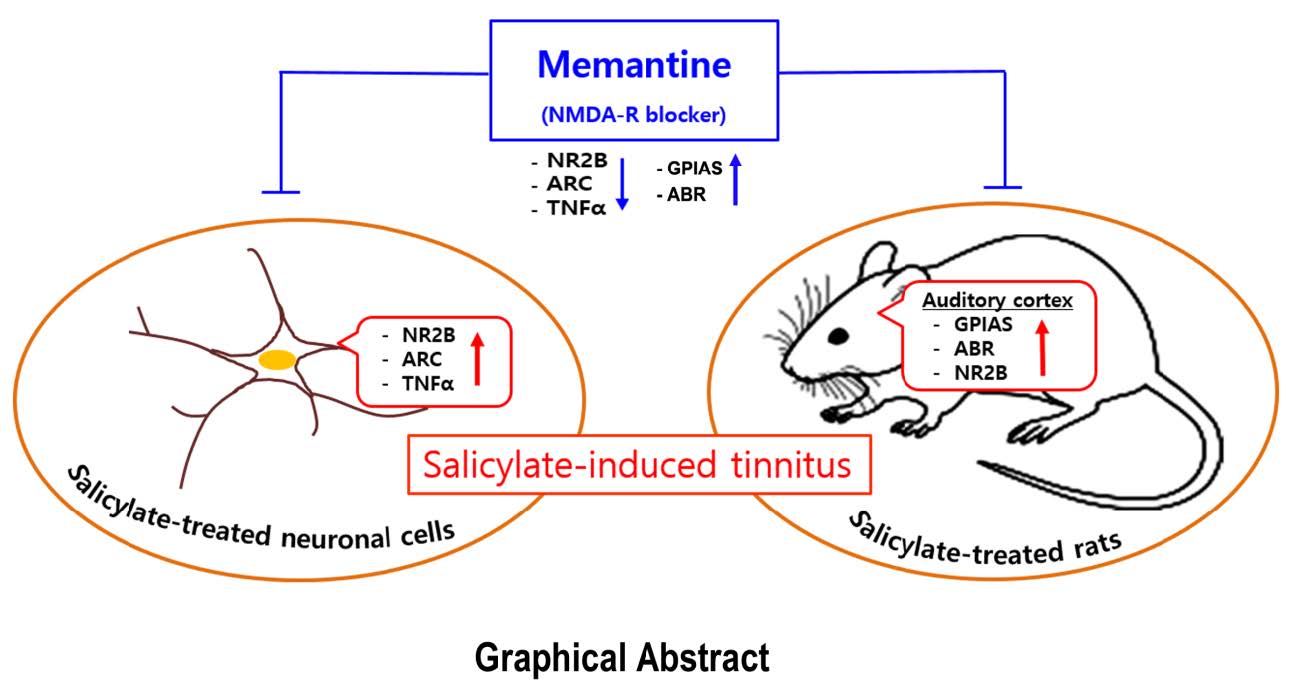Articles
Article Tools
Stats or Metrics
Article
Original Article
Exp Neurobiol 2019; 28(4): 495-503
Published online August 31, 2019
https://doi.org/10.5607/en.2019.28.4.495
© The Korean Society for Brain and Neural Sciences
Memantine Attenuates Salicylate-induced Tinnitus Possibly by Reducing NR2B Expression in Auditory Cortex of Rat
Chul Ho Jang1, Sueun Lee2, Il Yong Park3, Anji Song4,5, Changjong Moon2* and Goang-Won Cho4,5*
1Department of Otolaryngology, Chonnam National University Medical School, Gwangju 61469, 2Department of Veterinary Anatomy, College of Veterinary Medicine and Animal Medical Institute, Chonnam National University, Gwangju 61186, 3Department of Biomedical Engineering, Dankook University College of Medicine, Cheonan 31116, 4Department of Biology, College of Natural Science, Chosun University, Gwangju 61452, 5Department of Life Science, BK21-Plus Research Team for Bioactive Control Technology, Chosun University, Gwangju 61452, Korea
Correspondence to: *To whom correspondence should be addressed.
Changjong Moon, TEL: 82-62-530-2838, FAX: 82-62-530-2809
e-mail: moonc@chonnam.ac.kr
Goang-Won Cho, TEL: 82-62-230-6641, FAX: 82-62-230-6650
e-mail: gwcho@chosun.ac.kr
This is an Open Access article distributed under the terms of the Creative Commons Attribution Non-Commercial License(http://creativecommons.org/licenses/by-nc/4.0) which permits unrestricted non-commercial use, distribution, andreproduction in any medium, provided the original work is properly cited.
Abstract
Memantine, a noncompetitive antagonist of the
Graphical Abstract

Keywords: Tinnitus, Salicylate, Memantine, Salicylate-induced tinnitus


